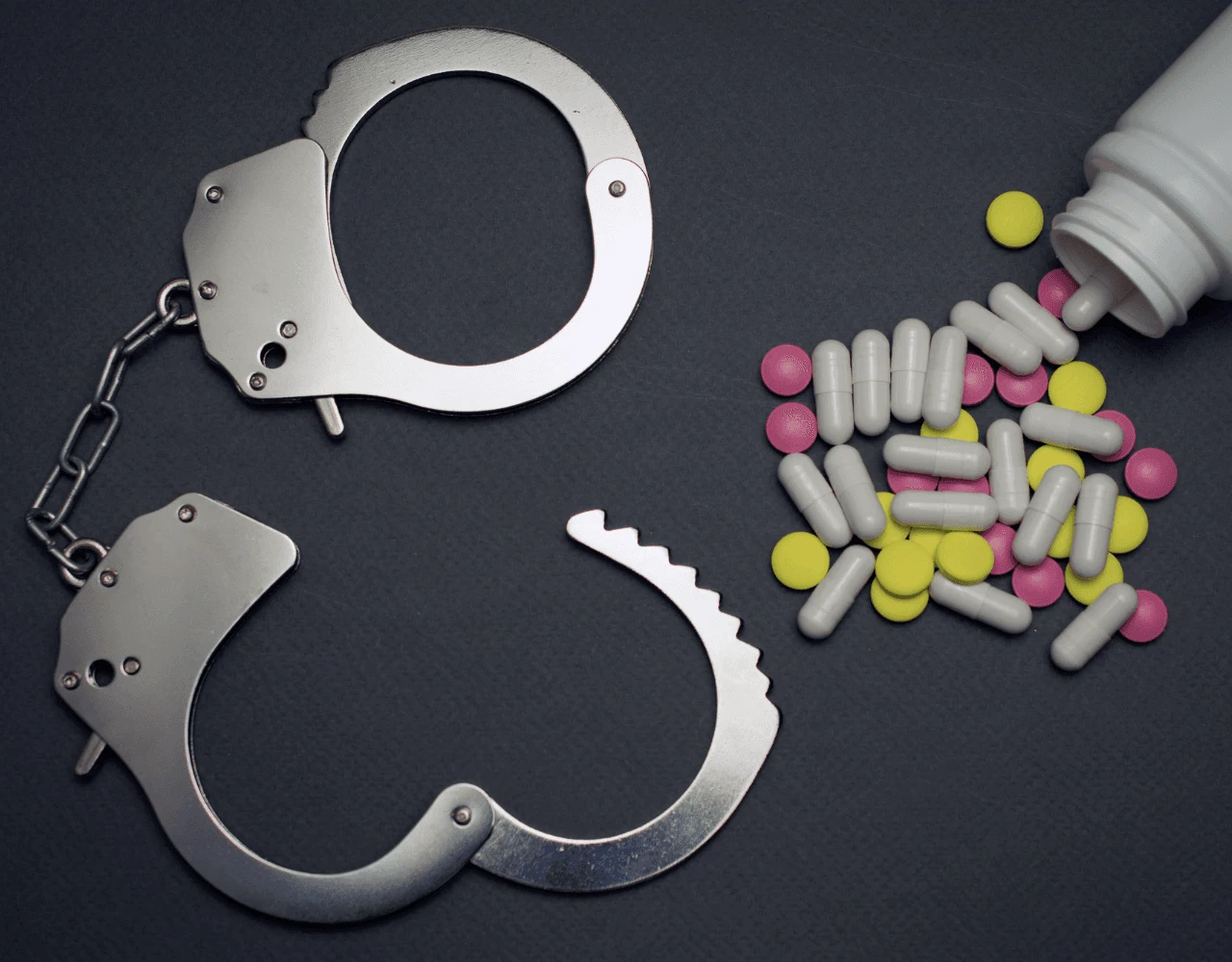Alternative Sentencing Options for Drug Charges in Chicago
2025-04-23T13:15:00
After a drunk driving arrest, you have several options, all of which can be carefully explained to you by an experienced DUI criminal defense attorney. You can plead guilty, though this means you must serve the sentence imposed by the judge without a fight. Or you may plead innocent and take your DUI case all the way through trial. Also, you can accept a plea bargain where you enter a guilty plea and agree to certain consequences.
Although your DUI criminal defense attorney can help you through the Illinois DUI court process and advise you on the best course of action, it’s up to you to choose which legal option you prefer. For more information on your rights following a DUI arrest, contact the experienced Chicago DUI defense attorney at Ktenas Law today at (312) 756-8652.
[joli-toc]
Often, persons who are arrested for driving under the influence of alcohol or drugs have no previous criminal history. Typically, a DUI arrest is unexpected, and the legal process is unfamiliar and may be intimidating if you have never been in court before. DUI arrest procedures vary by state and locality, but here’s an overview of the various court hearings and common procedures you should expect to encounter in a standard DUI case.
In Illinois, the DUI court process starts the moment a law enforcement officer suspects a driver is driving under the influence. This is usually after observing a traffic violation or responding to a motor vehicle accident. The law enforcement officer observes the driver’s demeanor, behavior, and physical appearance, leading to a suspicion of impairment.
If the police officer suspects the driver of being impaired, he/she asks the driver to perform various standardized field sobriety tests. The driver can refuse to take field sobriety tests. Also, the officer may ask the driver to take a portable breath test. This test isn’t admissible in court and the driver can refuse to take this test.

Once the driver is placed under arrest for drunk driving and taken to the police station, he or she is asked to take a breathalyzer test, which measures his or her blood alcohol concentration. The results of this chemical test are admissible in court, provided the police officer follows proper procedures. Again, the driver can refuse to take this test. If your blood alcohol concentration is 0.08 or greater, you can be charged with a drunk driving offense in Illinois. However, just because the state has a breath or blood test against you, this doesn’t mean that you can’t beat your DUI case.
Typically, the driver is then released on bond. And he or she is given a court date and a notice that their driver’s license will be suspended in 46 days. If they’re a first-time DUI offender, the period of license suspension will last for 6 months if the results of the breathalyzer test results show a blood alcohol content of 0.08 or greater, or one-year license suspension if the driver refused to take a breathalyzer test. If this isn’t their first DUI offense, the period of license revocation will be one year if the results of the breathalyzer show a blood alcohol level of 0.08 or greater or three years if the person refused to take a breathalyzer test.
Within 90 days of the DUI arrest, you can petition the court for a hearing to rescind the license suspension. The judge must provide you a court hearing within a month of filing or on the initial court date.
A DUI case is a civil matter where the burden of proof rests on you to prove one of four limited elements of improper police procedures.
If you’re a first-time offender, you can apply for a Monitoring Device Driving Permit (MDDP) to drive. If granted, you’ll have to install a Breath alcohol ignition interlock device (BAIID) on your vehicle. This device is expensive to install and maintain, and you’ll foot the cost of installation and maintenance.
A DUI charge is a criminal charge. During the court hearing, the DUI offender will appear in front of a judge and will be advised of the charge against them. Evidence will be exchanged between the defendant’s attorney and the prosecutor and pretrial motions will be filed. With the advice of a DUI criminal defense attorney, the defendant will enter a plea of guilty or not guilty. Typically, this Legal process takes 1-3 court appearances.
If guilty, the driver’s DUI attorney will negotiate a sentence with the prosecutor, which ranges from a period of court supervision up to one year in jail. DUI criminal penalties include statutory summary suspension, substance abuse treatment, loss of driving privileges, jail time, hefty fines, and lawyer fees.
If not guilty, there will be a trial in front of a judge or jury–the defendant’s choice and the state has to prove beyond reasonable doubt that you were driving while intoxicated.

During the trial, the State will call witnesses, which includes the arresting police officer. The State will then rest its case. Then the defendant will have the chance to present any evidence he or she wishes, including witness testimony or his or her own testimony. However, the driver can’t testify in a criminal case. The Prosecutor and the defendant’s DUI criminal defense attorney will then make final arguments to the judge or jury. Post-trial, the jury or criminal court judge will make a judgment of guilty or not guilty.
If you’re found not guilty of a DUI charge, you’ll be discharged without consequence. However, if you’re found guilty, a sentencing hearing will be held. The state will present aggravating factors such as your previous criminal history and traffic background to the judge. Your DUI criminal defense lawyer must then present you positively, citing specific hardship and mitigating factors to convince the judge to be lenient.
If you’re charged with a DUI offense in Chicago, you need the representation of an experienced and aggressive DUI criminal defense attorney. However, since every DUI case is unique, make sure your criminal defense lawyer is giving you the attention your case deserves. Call Ktenas Law today at (312) 756-8652 to protect your rights throughout the DUI process.
In Illinois, a driver can be convicted of driving under the influence of alcohol or drugs for driving or being in “actual physical control” of a motor vehicle:
Following a DUI arrest, a DUI offender is subject to administrative or license-related penalties. A criminal penalty will also be imposed if the offender is later convicted of drunken driving in court.
A DUI offender will also face administrative penalties, including driver’s license suspension or revocation. To get back your license, you must pay reinstatement fees. According to Illinois’s implied consent law, all drivers are considered to have given consent to chemical testing or field sobriety tests if there’s probable cause to believe he or she is drunk driving. The Illinois Secretary of State automatically suspends the driver’s license of any driver arrested for intoxicated driving who refuses, fails, or fails to complete chemical testing. This administrative legal process is referred to as a “statutory summary suspension.”

A driver fails chemical testing if it detects:
A person who hasn’t had a statutory summary suspension and doesn’t have a previous DUI conviction in the last five years may face the following license suspension periods:
Also, a DUI offender must install a monitoring device driving permit (MDDP) into their car. This device allows a driver to drive for any purpose and at any time during the statutory summary suspension, as long as they install a breath alcohol ignition interlock device (BAIID) in their vehicle. Typically, for a first-time offense, an offender whose driving privileges have been suspended will be issued an MDDP. But DUI offenders who refused chemical testing aren’t eligible for the driving permit.
In Illinois, a first drunk driving conviction is a class A misdemeanor charge. A misdemeanor DUI criminal offense carries:
The fines imposed for a first-time drunk driving conviction include:
Under the following conditions, community service is imposed for first offenders:
In addition to the statutory summary suspension mentioned above, a driver convicted of impaired driving for the first time will face a 1-year suspension period. Any time the driver’s license was administratively suspended is credited towards the one-year suspension period.
The person can also apply for a restricted driving permit (RDP) or hardship license to drive to school, medical appointments, work, and alcohol/drug treatment. In limited situations, a person with an RDP can drive the elderly, children, and disabled persons. To get an RDP, the DUI offender must prove that a hardship exists and he or she isn’t a danger to public safety. If your driver’s license has been suspended for a first DUI conviction and a statutory summary suspension, you must install a BAIID in your vehicle for the duration of the restricted driving permit.
All DUI offenders must complete an alcohol/drug evaluation and treatment program to establish if they have a substance abuse problem. If they a substance abuse problem, they must undergo alcohol evaluation and treatment in a recommender program. Also, DUI offenders can be required to attend a victim impact panel (VIP).
Choosing the right lawyer for a DUI case in Illinois can be difficult, especially because time probably isn’t on your side. You probably won’t have the chance to interview a pool of DUI criminal defense attorneys, carefully weigh your pros and cons, and make an educated decision after weeks of consideration. Thus, do some research online or ask family and friends for recommendations.
Look for an Illinois DUI attorney who is reputable and has extensive experience handling DUI cases in DuPage County, Cook County, and throughout Illinois. At Ktenas Law, our experienced DUI criminal defense lawyers have decades of experience helping DUI offenders beat their charges and we can help you keep a clean driving record.

When you meet with an Illinois DUI attorney to discuss your legal options and defense strategies, they will first ask you for details about your DUI arrest. The DUI lawyer will want to have a complete picture of what happened and what evidence the arresting officer has against you. Then, you and your experienced attorney will discuss your two plea options: guilty or not guilty, and you will go to trial. In Illinois, plea bargains aren’t accepted under DUI statutes.
Don’t forget to ask how the lawyer plans to handle your case. You may be surprised at the many criminal defense options available to you. In fact, there are many loopholes and defense strategies that an attorney can use to get your DUI charges reduced or even dismissed. This includes:
Further, ask the DUI attorney about their rates. Also, you should choose an attorney who is patient and whom you trust since you’re likely to be working with them for months. The most important thing is to feel comfortable with and trust your DUI criminal defense attorney.
A single drunk driving arrest in Illinois can significantly jeopardize your freedom, your job, your reputation, insurance rates, and it can even cause a loss of driving privileges. If you’ve been arrested for driving under the influence of drugs and alcohol in Illinois, you can’t afford to delay your defense. The penalties for a DUI charge are harsh, you need a skilled Chicago DUI lawyer who can aggressively defend your rights.
The DuPage County, Kendall County, and Cook County DUI defense attorneys at the Ktenas Law offer professional and knowledgeable legal representation throughout the entire legal process. We’ll analyze the facts of your DUI case and determine the right defense strategy necessary to ensure the best outcome. To schedule a free initial consultation, call our reputable defense team today at (312) 756-8652, or chat with us online to learn how we can help.

2025-04-23T13:15:00

2025-04-07T11:50:40

2025-03-24T11:55:03

